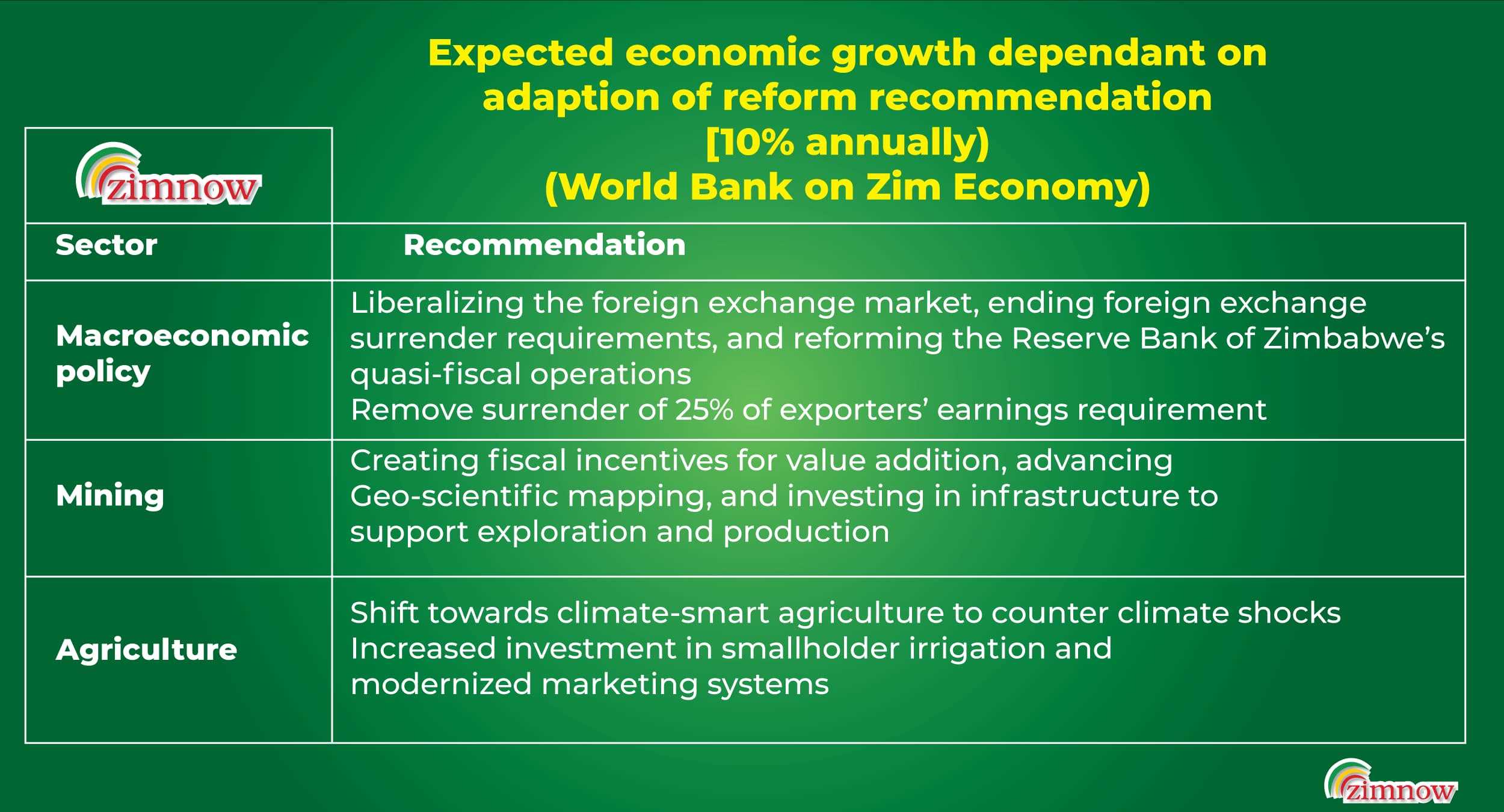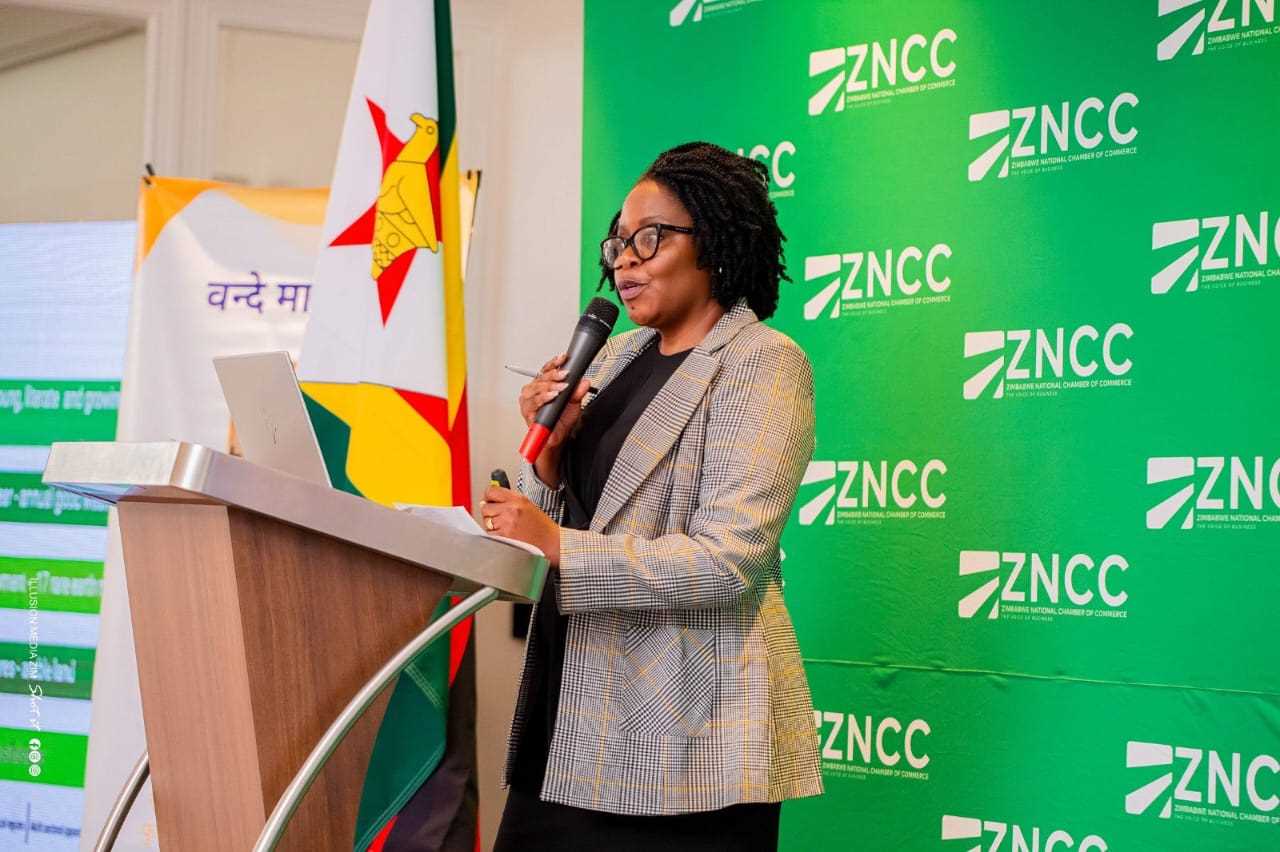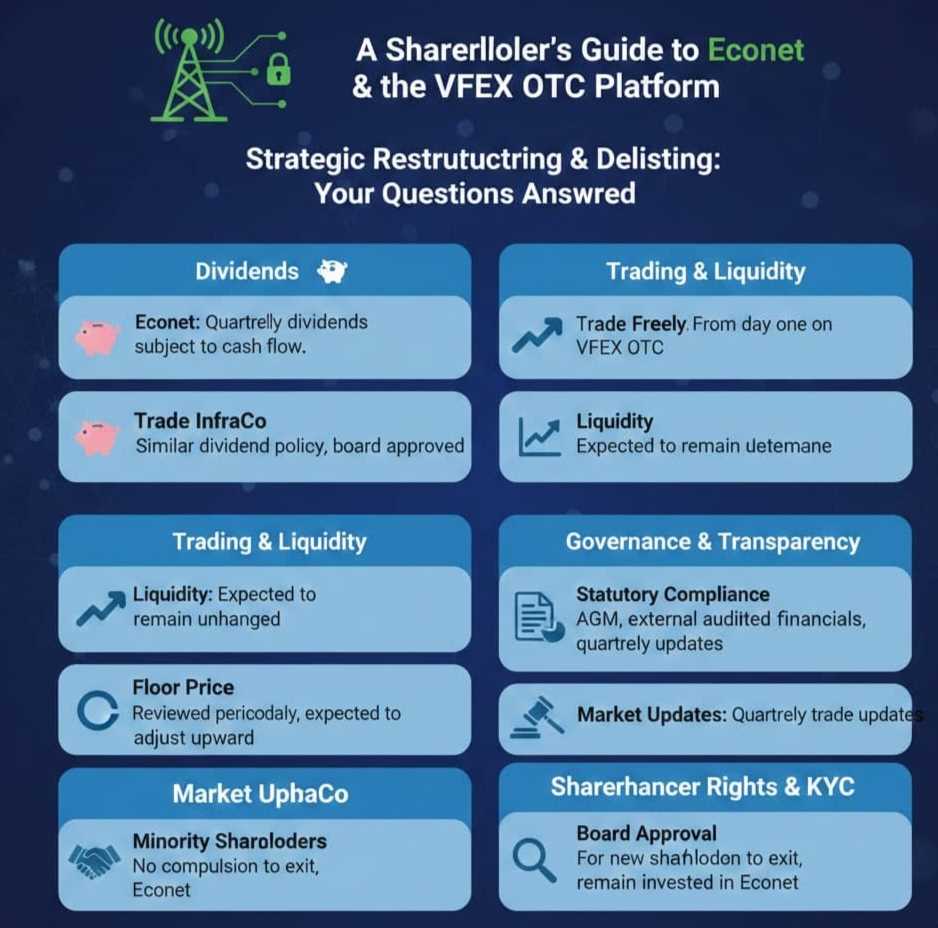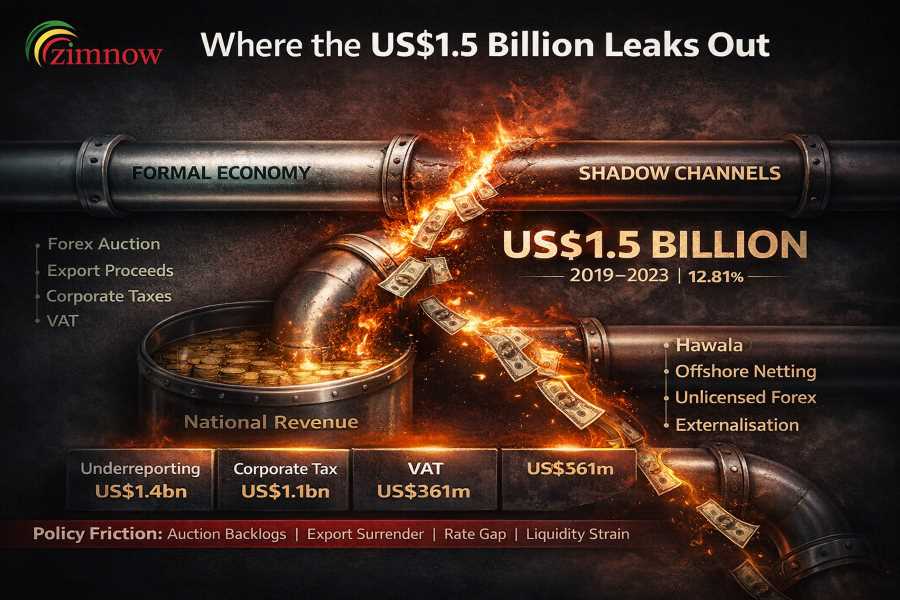
Oscar J Jeke
Zim Now Reporter
The World Bank's recent report paints a pivotal picture of Zimbabwe’s economic trajectory, describing the nation as being "at a crossroads."
In its 2025 Zimbabwe Economic Update, the Bank posits that the country’s ability to achieve Upper Middle-Income status hinges on the implementation of comprehensive reforms across several critical sectors. The report notes that by addressing systemic issues, Zimbabwe could unlock a decade of rapid growth and economic transformation. However, failure to act may consign the country to stagnation and vulnerability.
According to the report, economic growth is expected to rebound to 6% in 2025, following a projected slowdown to 2% in 2024. The report outlines two distinct scenarios for Zimbabwe. Under a “business-as-usual” approach, growth would be capped at 3% annually, with the government losing revenue to the informal economy and facing increased vulnerability to climate shocks.
In contrast, decisive reforms could drive annual growth rates up to 10%, doubling mining output by 2050 and significantly expanding the industrial and service sectors.
The World Bank highlights Zimbabwe's competitive advantages in agriculture, mining, and tourism as key engines for this potential growth.
However, the path to sustained growth is not without challenges. One major hurdle is macroeconomic instability, which the report identifies as a significant impediment.
The World Bank recommends liberalizing the foreign exchange market, ending foreign exchange surrender requirements, and reforming the Reserve Bank of Zimbabwe’s quasi-fiscal operations.
These measures aim to stabilize the currency and create a more conducive environment for effective fiscal and monetary policies. Currently, exporters are required to surrender 25% of their earnings in Zimbabwean dollars, a policy the Bank describes as a “significant tax” that stifles competitiveness.
The report suggests that removing this requirement could boost growth in export-driven sectors.
Related Stories
Zimbabwe’s rich reserves of platinum and lithium are highlighted as pivotal for the global energy transition. However, the report notes that the mining sector is constrained by governance issues, state interference, and outdated laws.
The World Bank advocates for transparent and competitive allocation of mining concessions, adoption of green mining standards to attract high-quality investors, and the creation of fiscal incentives for value addition.
Additionally, the report emphasizes the importance of advancing geoscientific mapping and investing in infrastructure to support exploration and production. The Bank believes that these reforms would significantly enhance the sector’s global competitiveness.
With the increasing frequency of droughts in Zimbabwe, the report calls for a shift towards climate-smart agriculture. It recommends increased investment in smallholder irrigation and the modernization of marketing systems to improve productivity. Crucially, tenure insecurity remains a major barrier to agricultural growth.
The report states that streamlining procedures for 99-year leases and enhancing land transferability are critical steps for fostering investment and boosting agricultural output.
Zimbabwe’s tourism sector is identified as having significant untapped potential. However, poor infrastructure—particularly roads leading to key tourist sites—undermines the sector's competitiveness.
The World Bank proposes a comprehensive infrastructure repair program, along with streamlined licensing processes and incentives for airlines to enhance local connectivity.
Furthermore, the report highlights the need to diversify tourism offerings and strengthen the Zimbabwe Tourism Authority’s marketing efforts to unlock the industry’s full potential.
Zimbabwe’s digital economy is also highlighted as a catalyst for broader economic transformation. However, the World Bank criticizes restrictive policies on telecom operators, which hinder growth and investment.
The report recommends allowing operators to set cost-reflective tariffs and adjust them for inflation to unlock the sector’s potential.
By implementing these reforms, Zimbabwe could improve access to digital services, drive innovation, and support overall economic growth.




















Leave Comments